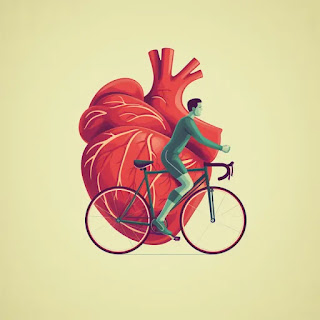Can Cycling Cause Heart Problems? Here's What the Science Actually Says
Can Cycling Cause Heart Problems?
Cycling is often praised for its heart-health benefits — and for good reason. It improves cardiovascular fitness, lowers blood pressure, and helps with weight control. But if you're a regular rider (especially a senior or endurance cyclist), you may have heard the question:
Can too much cycling actually hurt your heart?
Let’s dig into what science, doctors, and decades of cycling experience say about the real relationship between cycling and heart health.
❤️ The Good News: Cycling Is Great for Most Hearts
Study after study shows that moderate cycling reduces the risk of heart disease, stroke, and high blood pressure. Regular riders tend to have:
-
Lower resting heart rates
-
Improved cholesterol profiles
-
Better weight control
-
Reduced stress levels
The American Heart Association recommends at least 150 minutes of moderate aerobic exercise weekly — and cycling is one of the top choices.
So, for most people, riding your bike is one of the best things you can do for your heart.
⚠️ But What About Overdoing It?
Some headlines and studies have raised concern about the potential risks of extreme endurance cycling, especially for older athletes who push themselves over long periods.
Potential issues include:
-
Heart arrhythmias (like atrial fibrillation): Seen more often in long-term endurance athletes, especially men over 50.
-
Myocardial scarring: Rare, but has been observed in some ultra-endurance cyclists.
-
Overtraining Syndrome: Too much exercise with not enough rest can strain your cardiovascular and nervous systems.
🚨 Important note: These concerns typically apply to elite or ultra-distance riders pushing high-intensity efforts over many years — not casual or recreational cyclists.
🧠 What I’ve Learned as an Older Cyclist
As someone who’s been riding for decades, I take heart health seriously. I’ve known riders who went too hard, too often — and ignored signs their bodies were giving them.
But I’ve also known many who thrived well into their 60s, 70s, and beyond because they listened to their bodies, balanced effort with rest, and kept riding joyfully.
🛠 Smart Heart Tips for Cyclists (Especially Seniors)
✅ Get regular checkups
Even if you feel great, have your heart checked annually — especially after age 50.
✅ Pay attention to your heart rate
Use a heart rate monitor and learn your safe training zones.
✅ Rest and recover
Recovery isn’t weakness — it’s what allows your heart and muscles to grow stronger.
✅ Know your limits
Riding 5,000 miles a year doesn’t mean pushing hard every ride. Mix in low-intensity days.
✅ Watch for symptoms
Dizziness, chest pain, or irregular heartbeat? Stop and see your doctor.
🚴♂️ Bottom Line
For most of us — especially older adults — cycling supports better heart health when done smartly.
If you're riding at a comfortable pace, staying hydrated, resting regularly, and getting checked out when something feels off, you're on the right path.
So don’t fear the bike — ride it. Just remember to listen to your heart along the way.
Disclaimer: I am not a medical professional. This blog post is for informational purposes only and should not be construed as medical advice. Please consult with your doctor before starting any new exercise program.



Comments
Post a Comment